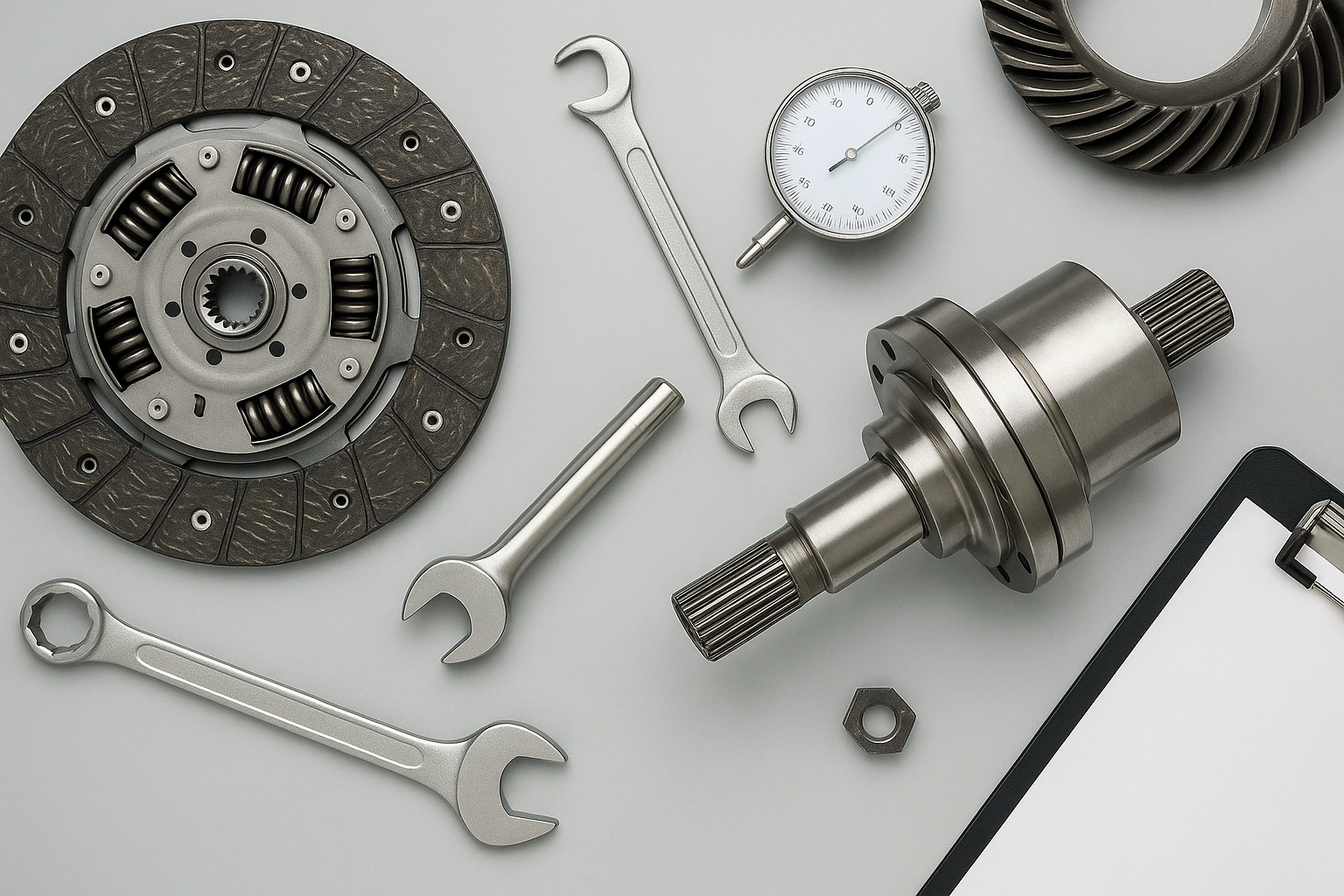SAE J2462 Transmission Endurance Bench Test
The SAE J2462 transmission endurance bench test is a critical procedure in automotive engineering aimed at evaluating the durability and performance of transmissions under simulated operational conditions. This test is particularly important for ensuring that transmissions meet the stringent requirements set by industry standards, thereby enhancing vehicle reliability and safety.
The test involves placing a transmission on a specialized bench with an attached dynamometer that simulates real-world driving conditions. The dynamometer applies torque to the input shaft of the transmission, while sensors monitor various parameters such as temperature, pressure, and fluid flow to assess the performance under stress. This endurance testing ensures that the transmission can withstand millions of cycles without failure.
A key aspect of this test is its ability to replicate the conditions a transmission faces in actual use, including varying loads, speeds, and temperatures. The test simulates various driving scenarios, such as city traffic with frequent starts and stops, highway cruising at high speeds, and mountainous terrain with steep inclines. By subjecting the transmission to these diverse operating conditions, engineers can identify potential weaknesses or areas for improvement before the product reaches mass production.
The SAE J2462 test also emphasizes the importance of fluid dynamics within the transmission system. Proper lubrication is crucial in preventing wear and tear on moving parts. During the test, the viscosity, temperature, and pressure of the transmission fluid are continuously monitored to ensure it remains at optimal levels throughout the endurance run.
The results from this test provide critical data that helps manufacturers refine their designs. Engineers can use these insights to enhance component durability, optimize gear ratios for better fuel efficiency, and improve overall performance. Additionally, the test contributes significantly to reducing warranty costs by identifying issues early in the development process.
| Test Parameter | Description |
|---|---|
| Dynamometer Torque Output | Simulates real-world driving conditions to test the transmission's response. |
| Fluid Temperature and Pressure | Maintains optimal operating conditions for extended periods of testing. |
| Gear Shift Cycles | Replicates the number of gear shifts expected in a vehicle's lifecycle. |
The SAE J2462 test is not only about endurance; it also focuses on identifying potential failure points. By subjecting transmissions to extreme conditions, engineers can pinpoint areas that need improvement or redesign. This proactive approach ensures that the final product meets the highest standards of reliability and performance.
Furthermore, this testing method helps manufacturers comply with international regulations and customer expectations for high-quality automotive components. The test results provide comprehensive data that can be used in certification processes and marketing materials to highlight a manufacturer's commitment to quality.
International Acceptance and Recognition
- The SAE J2462 transmission endurance bench test is widely accepted by major automotive manufacturers globally.
- Many leading carmakers incorporate this test into their development processes to ensure the robustness of their transmissions.
- This test is recognized by international standards such as ISO, ASTM, and SAE, ensuring its reliability and validity across different regions.
The widespread acceptance of the SAE J2462 test underscores its importance in the automotive industry. By adhering to this standard, manufacturers can ensure that their products meet the highest quality benchmarks set by international bodies. This recognition also facilitates smoother compliance with local regulations and helps maintain a high level of consumer trust.
Environmental and Sustainability Contributions
The SAE J2462 transmission endurance bench test plays a crucial role in promoting environmental sustainability within the automotive industry. By identifying potential failures early, this testing method ensures that transmissions are designed with longevity and efficiency in mind. This approach minimizes waste and reduces the need for premature replacements, contributing to a more sustainable manufacturing process.
Moreover, the data collected from these tests helps manufacturers design transmissions that consume less fuel and produce fewer emissions. By optimizing gear ratios and reducing friction losses, engineers can create transmissions that enhance vehicle fuel efficiency. This not only benefits consumers by lowering operating costs but also contributes to global efforts in combating climate change.
The test's emphasis on fluid dynamics also has environmental implications. Properly maintained transmission fluid reduces the risk of leaks and spills during operation, further minimizing its impact on the environment. By ensuring that transmissions operate at peak efficiency throughout their lifecycle, this testing method supports a more sustainable automotive industry.
Use Cases and Application Examples
| Use Case | Description |
|---|---|
| New Transmission Development | Evaluating the performance and durability of newly designed transmissions before mass production. |
| Performance Improvement | Identifying areas for enhancement in existing transmission models to improve efficiency and reliability. |
| Compliance Assurance | Ensuring that transmissions meet regulatory requirements and industry standards. |
The SAE J2462 test is particularly valuable during the initial stages of new transmission development. It allows engineers to identify potential issues early in the design process, reducing costly redesigns later on. This testing method also plays a crucial role in performance improvement initiatives by highlighting areas that need optimization.
In addition to its application in R&D, this test is used for compliance assurance purposes. By ensuring that transmissions meet stringent industry standards and regulatory requirements, manufacturers can gain confidence in the quality and reliability of their products.





